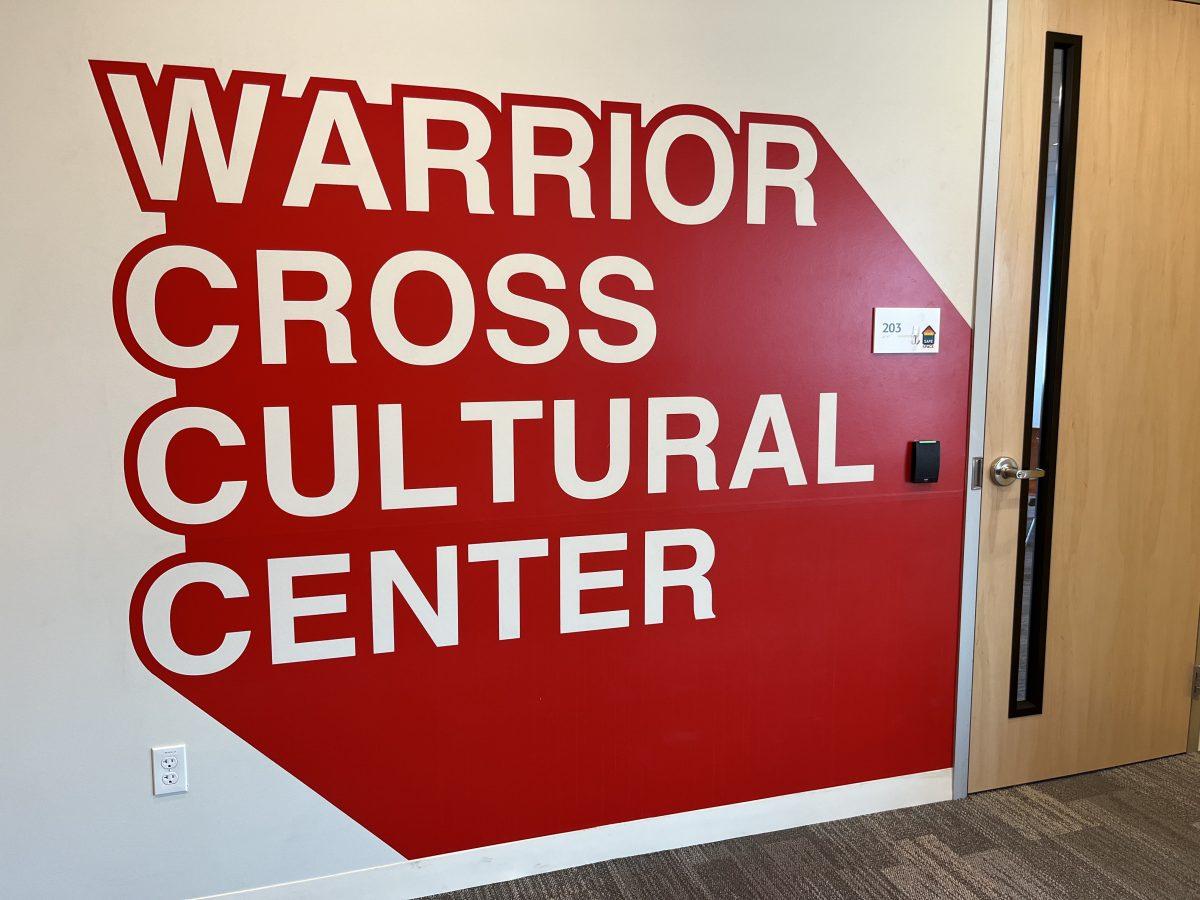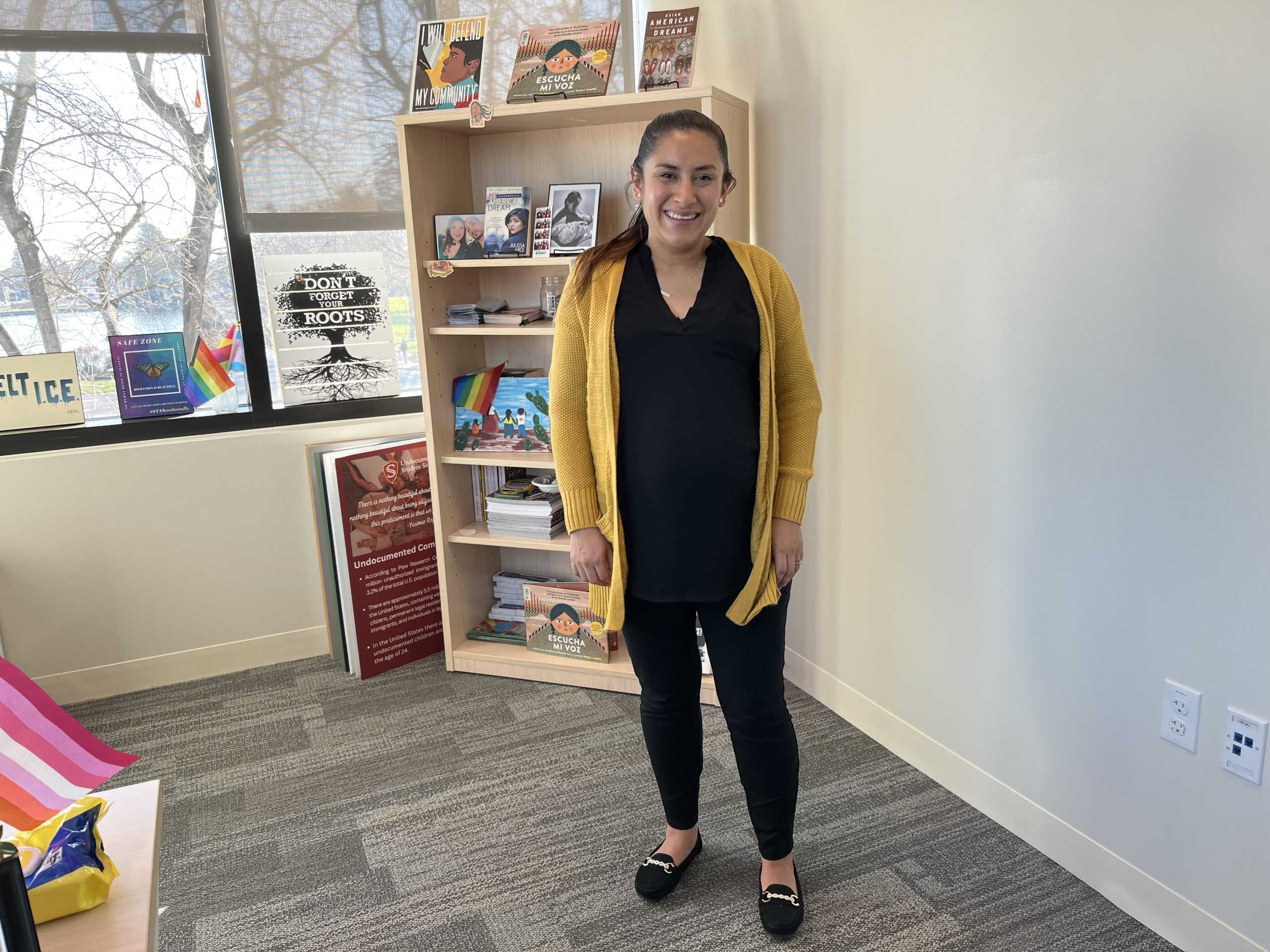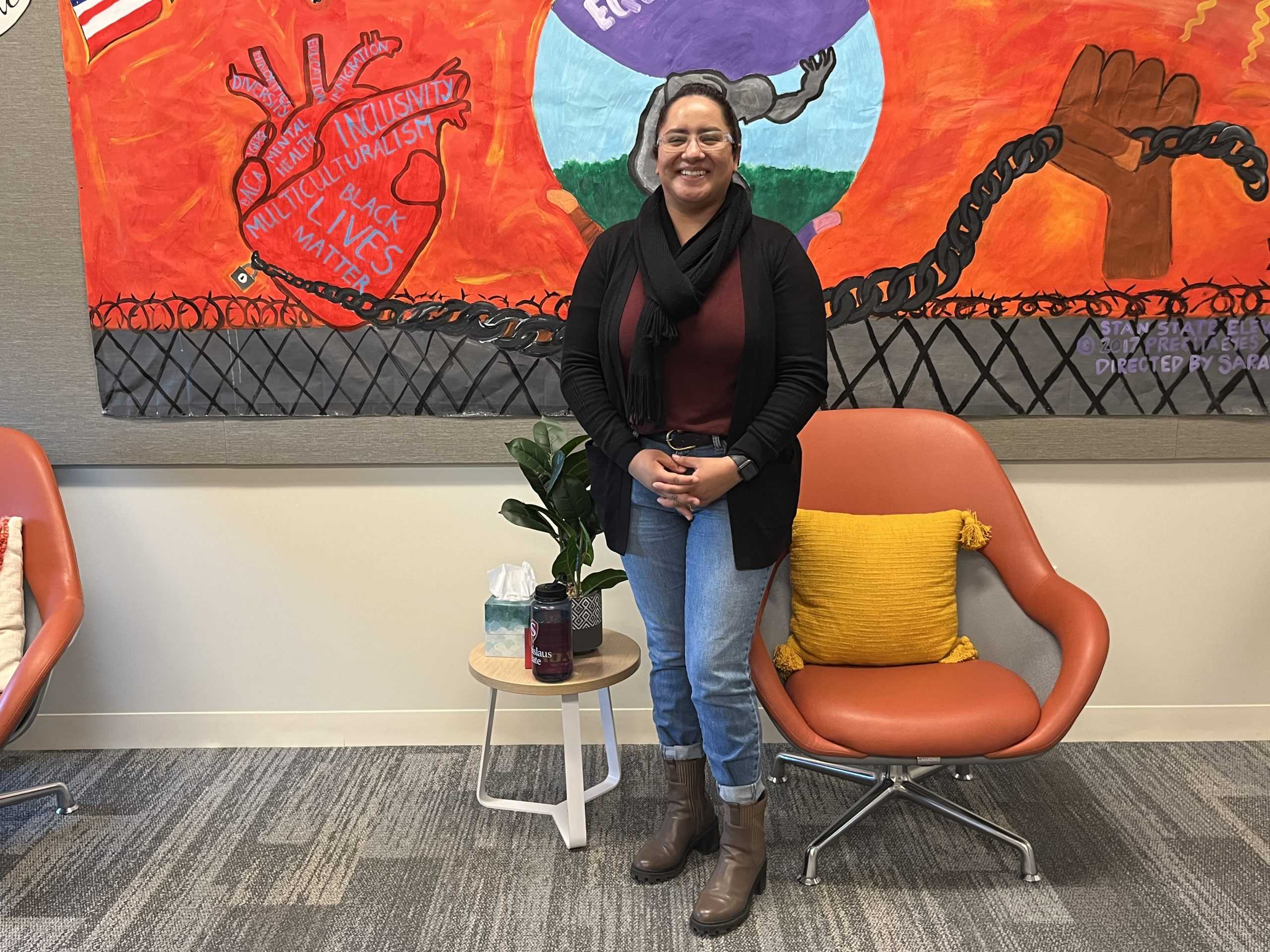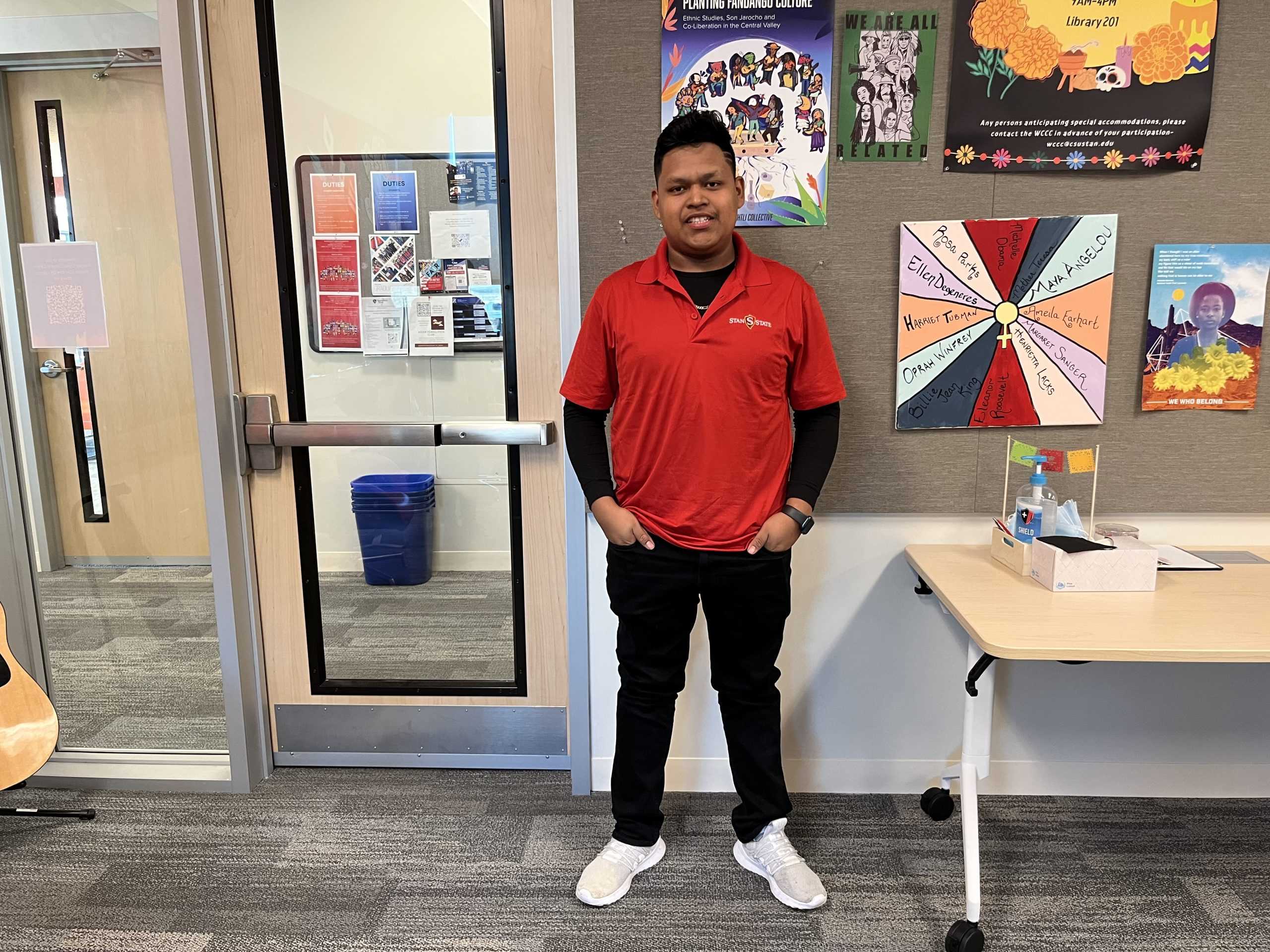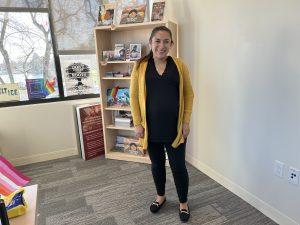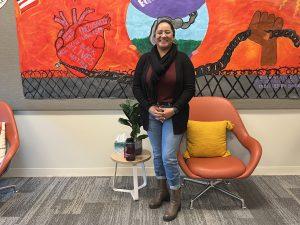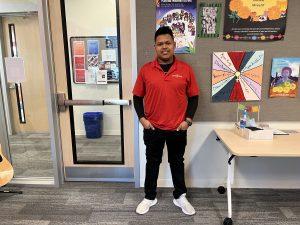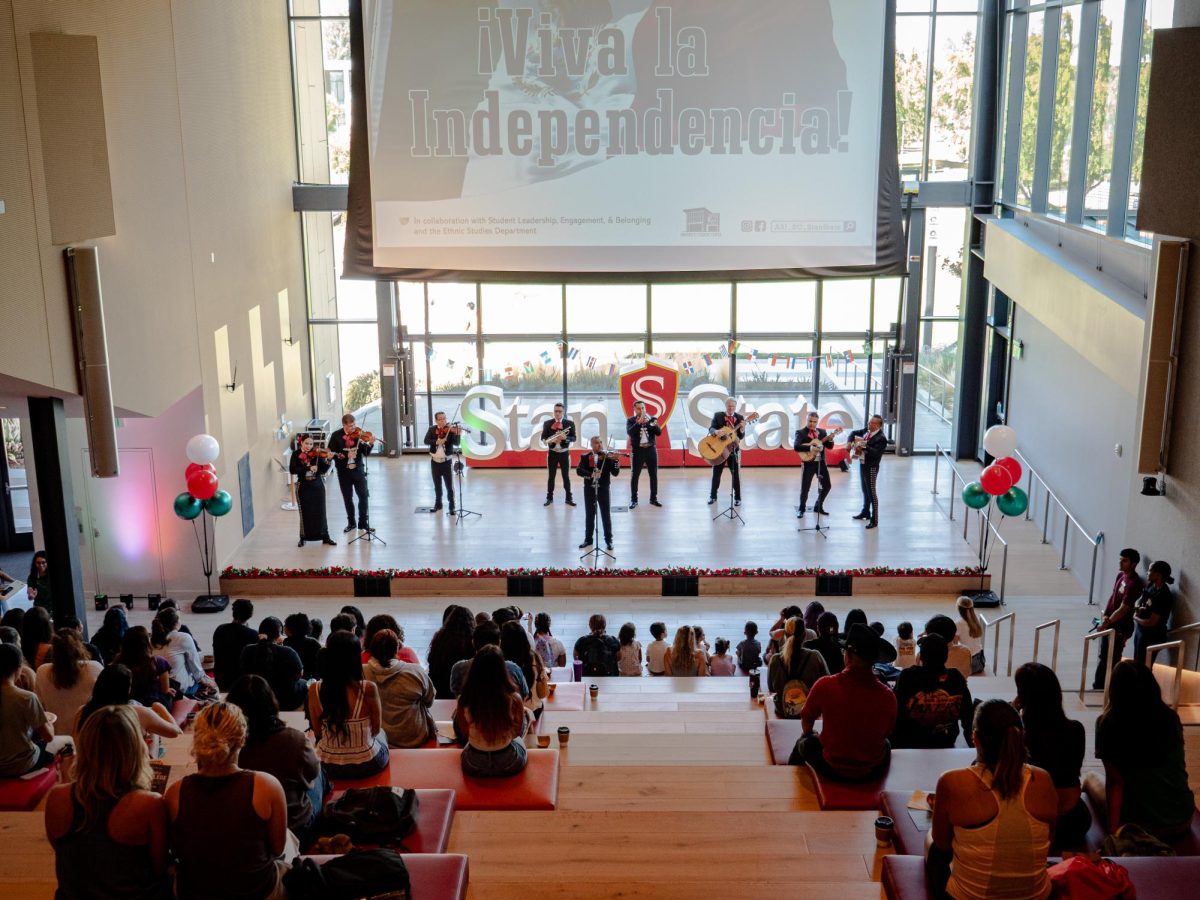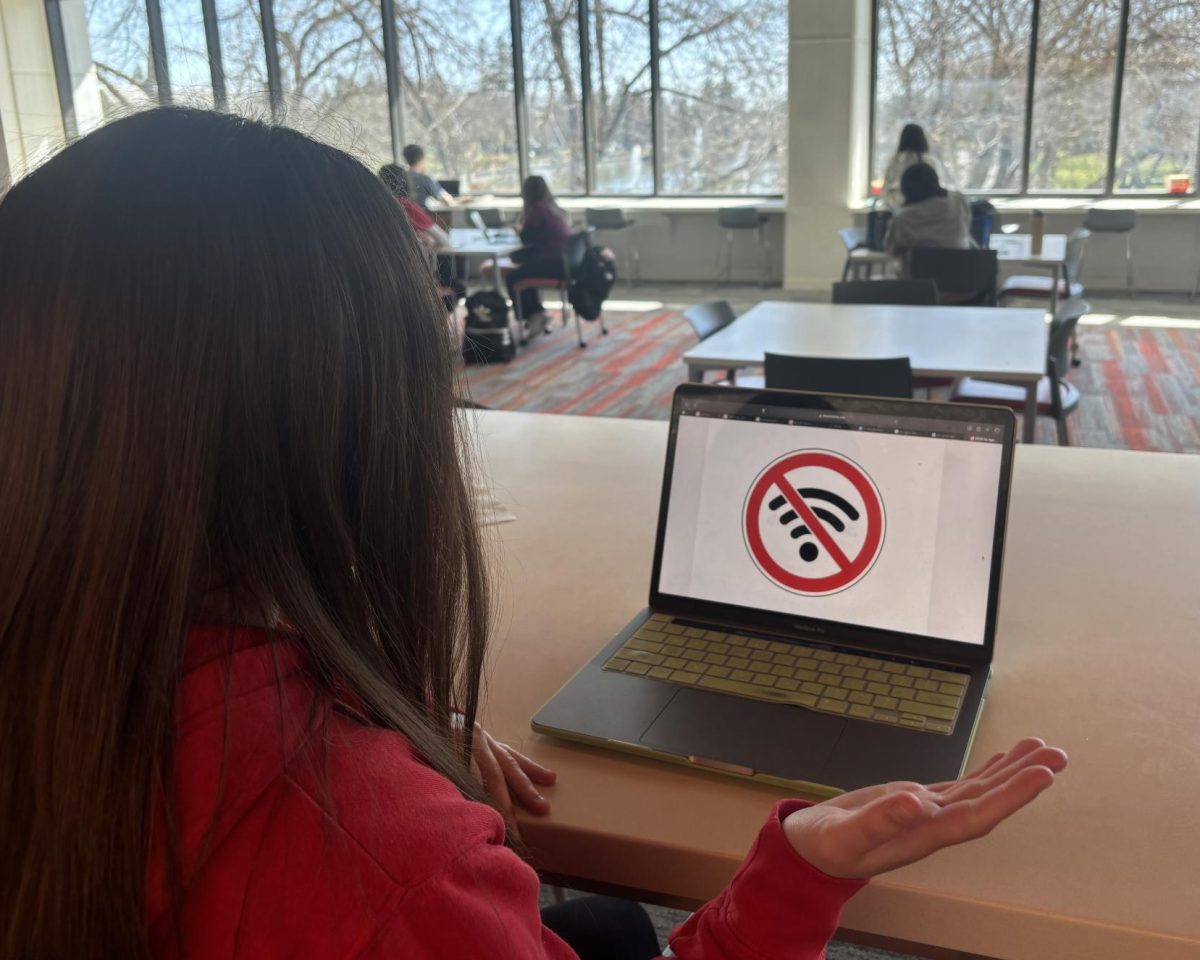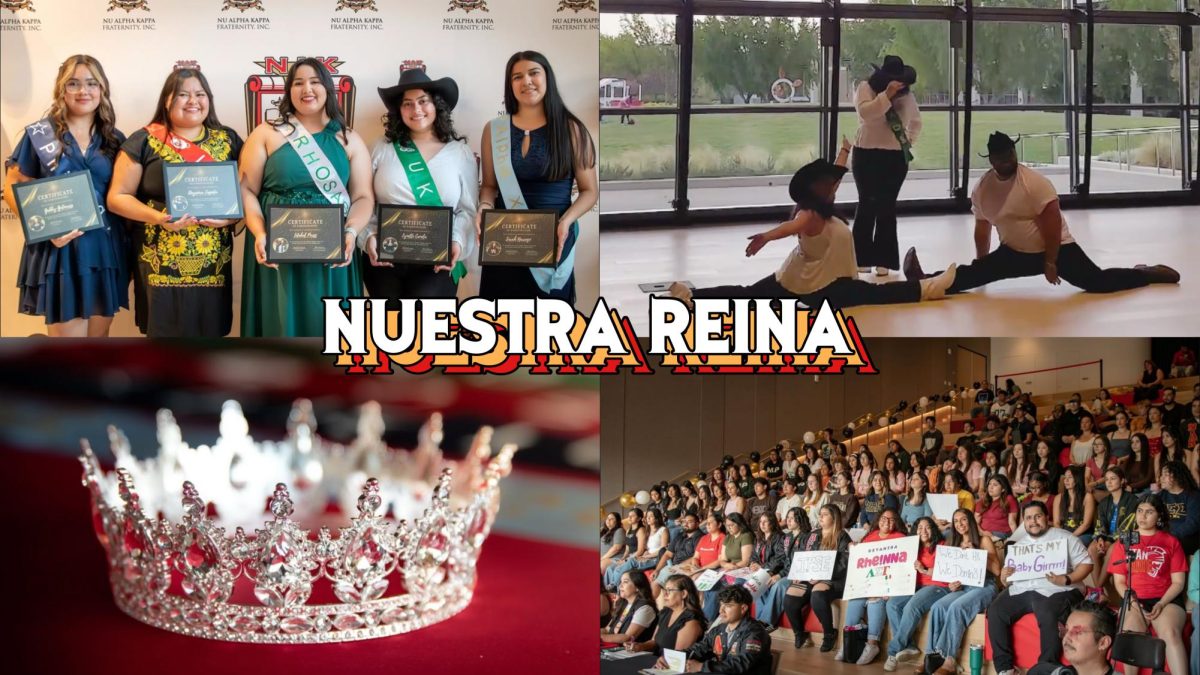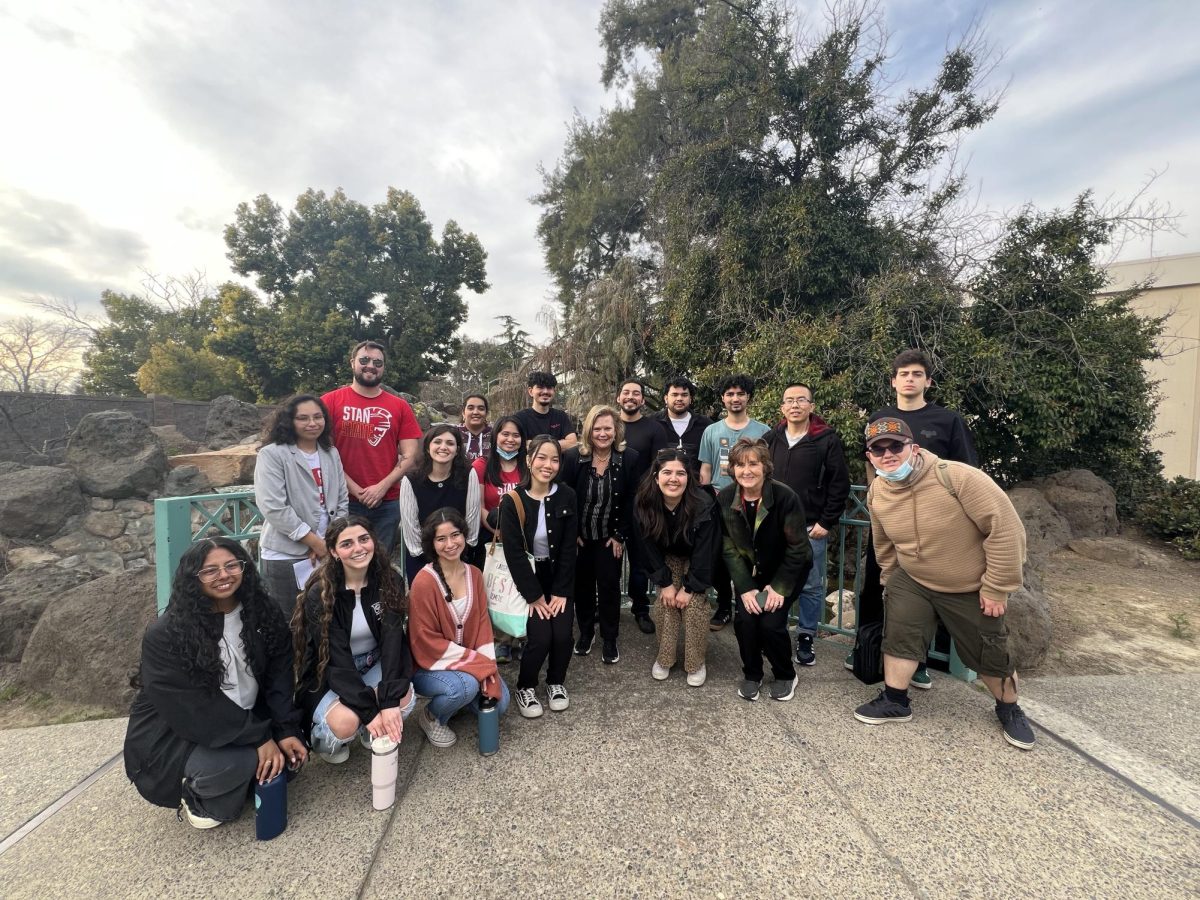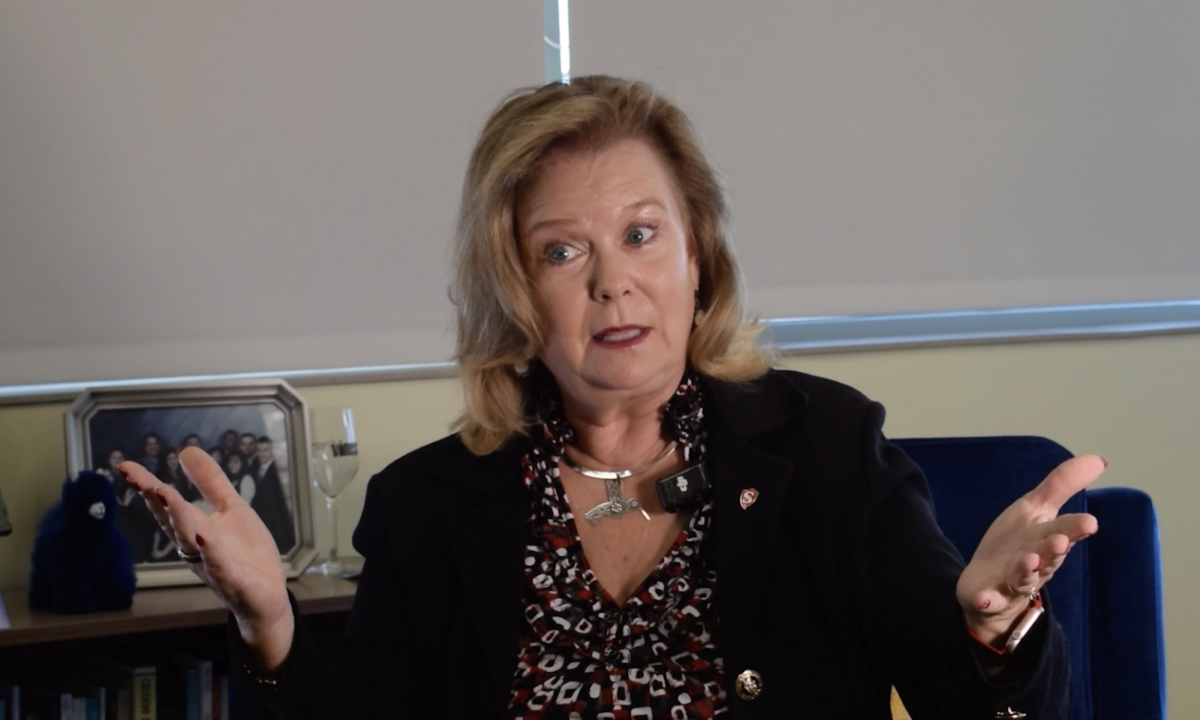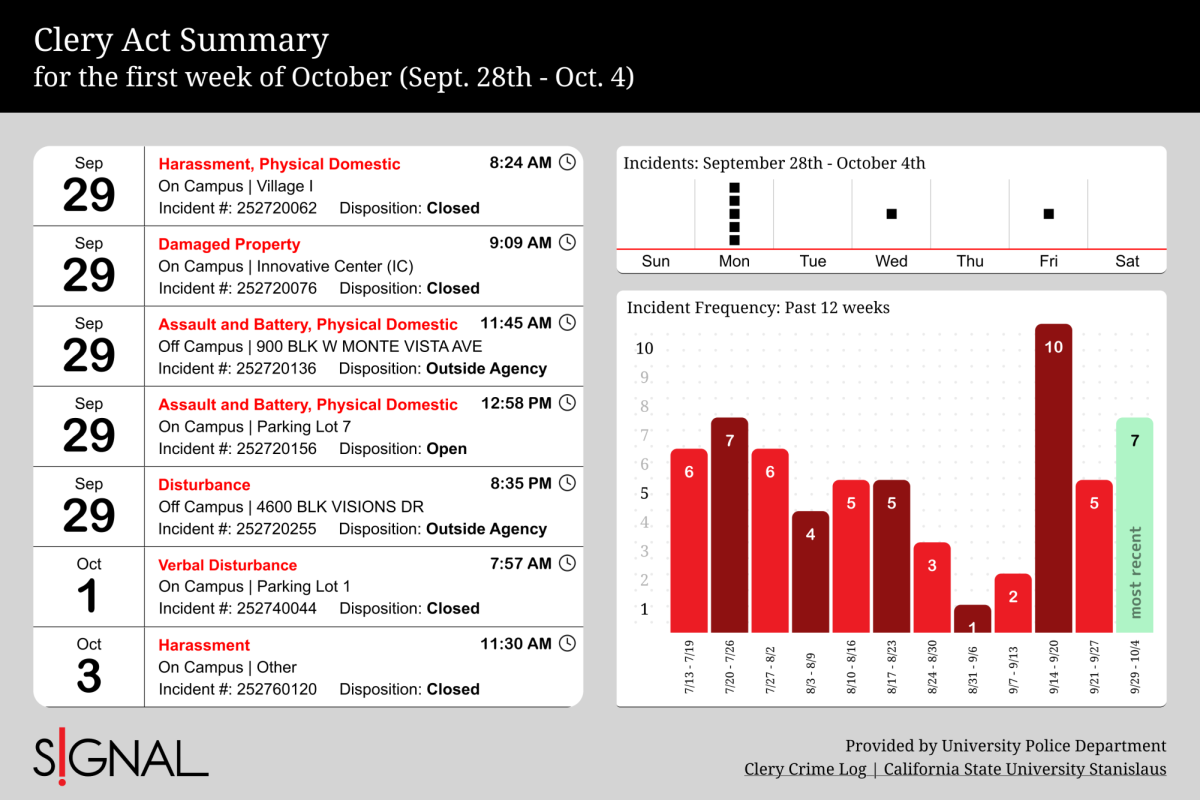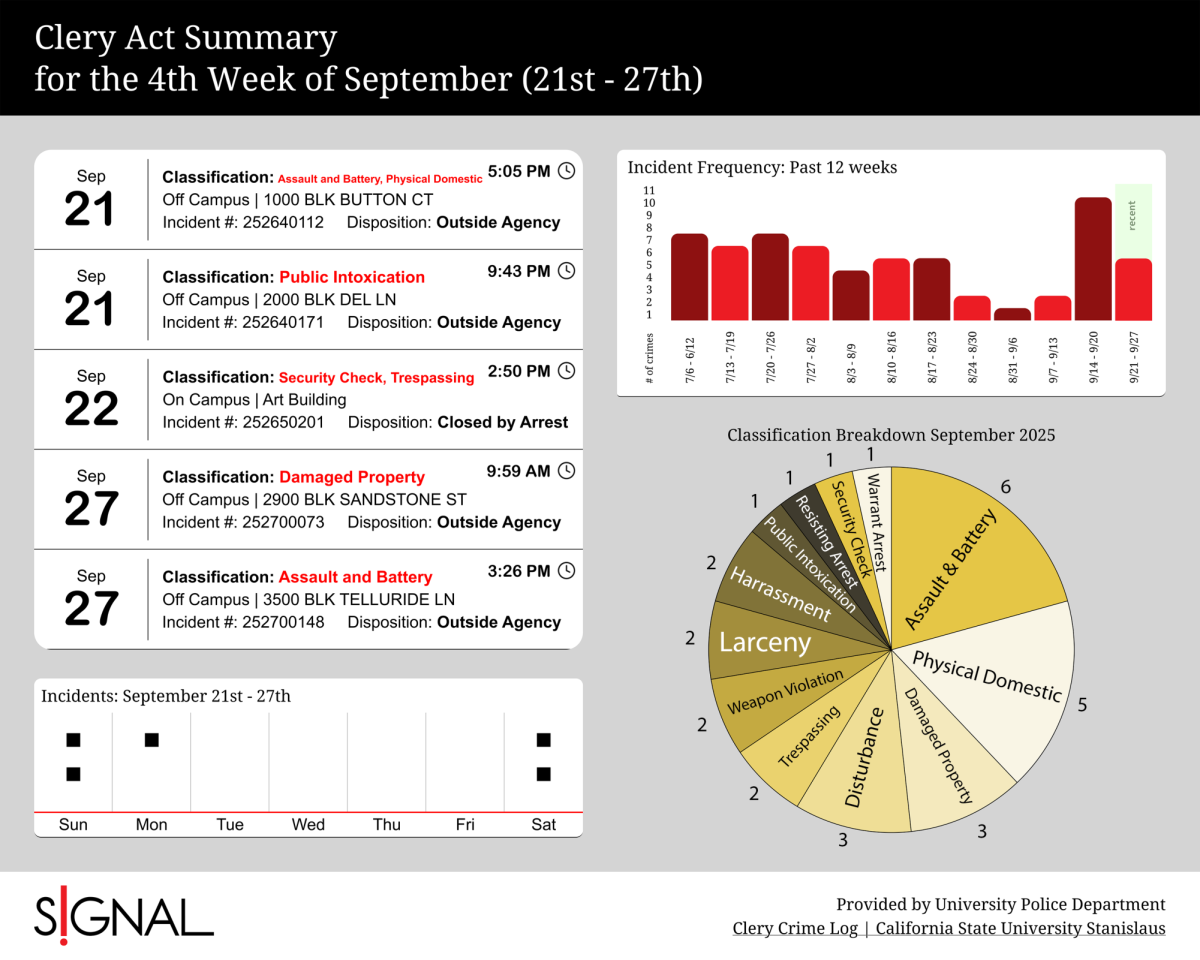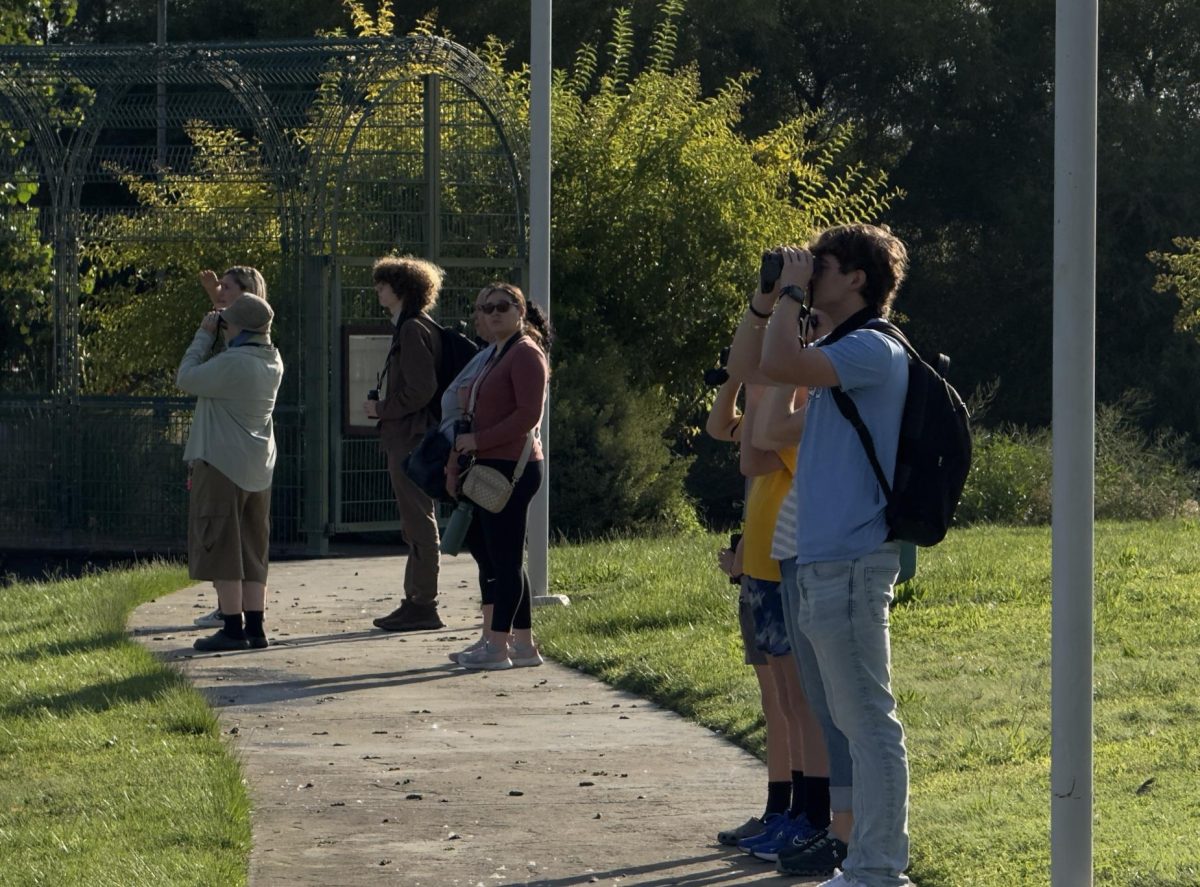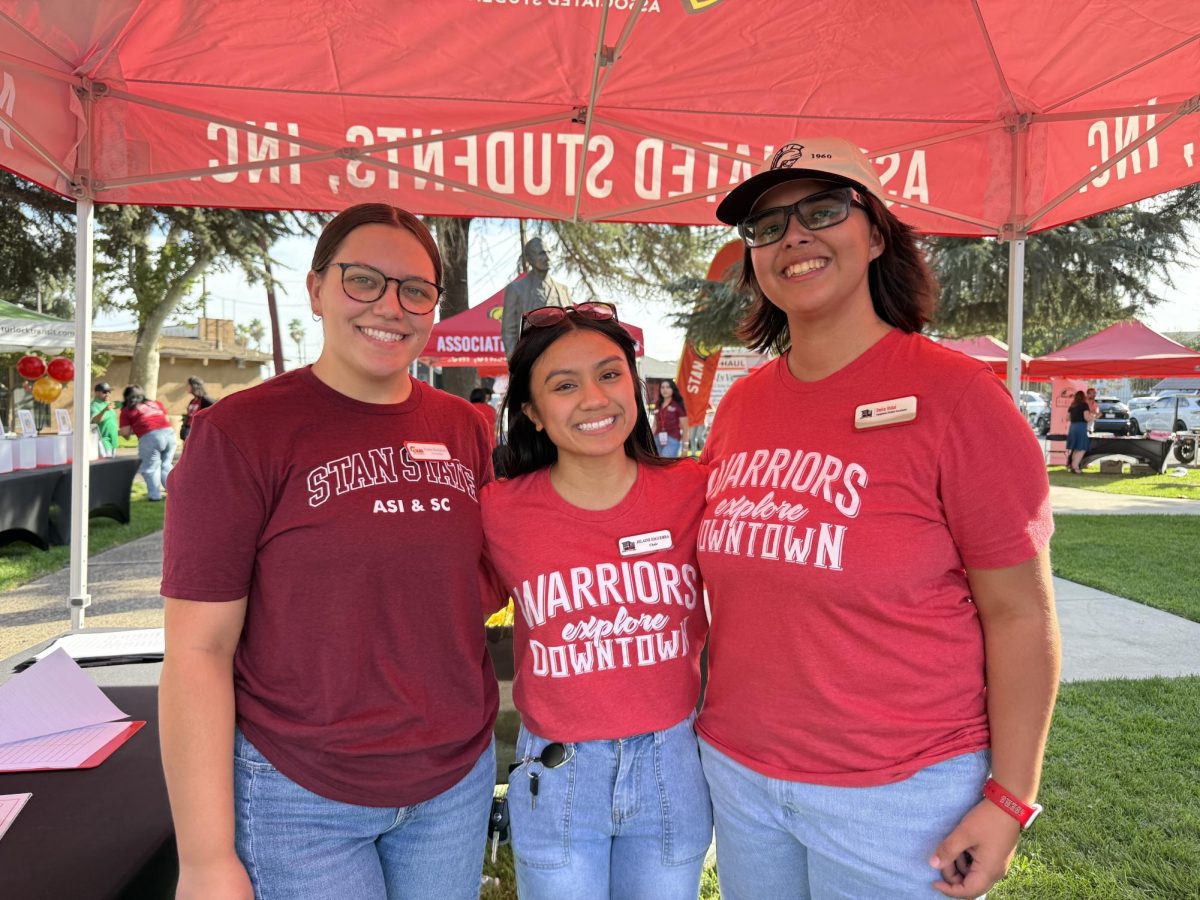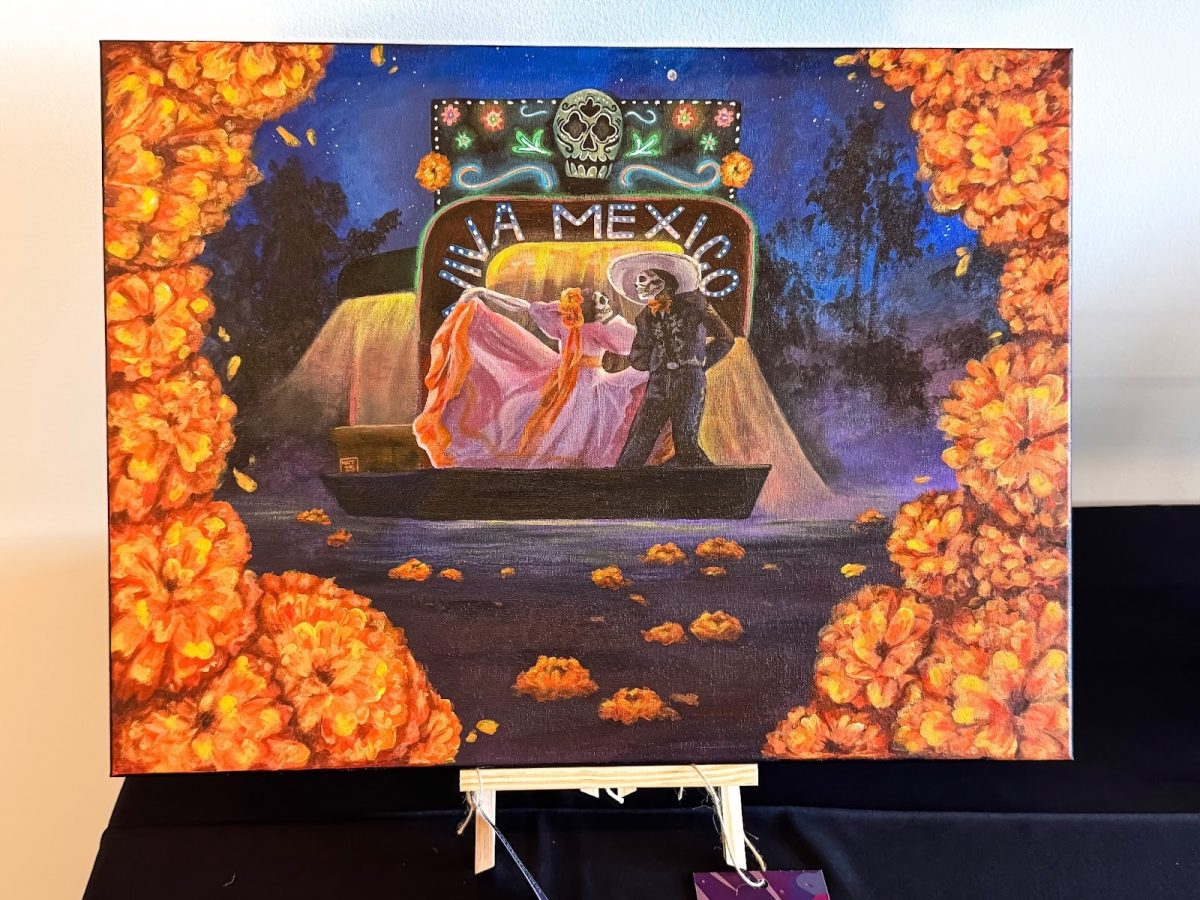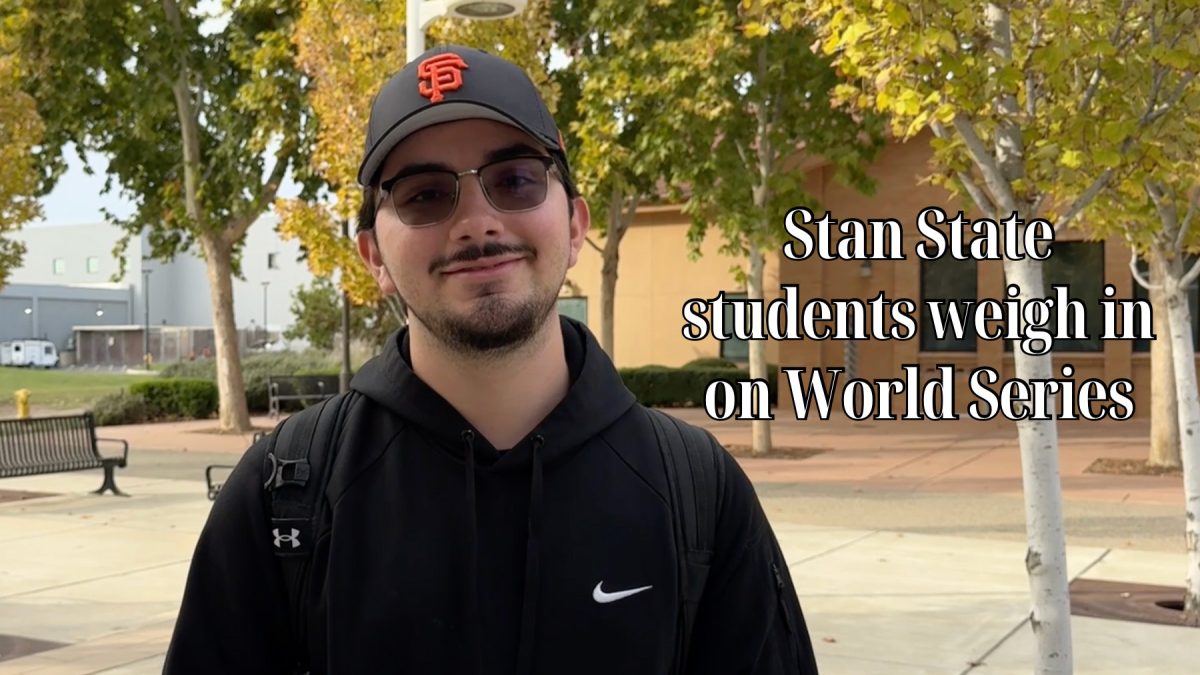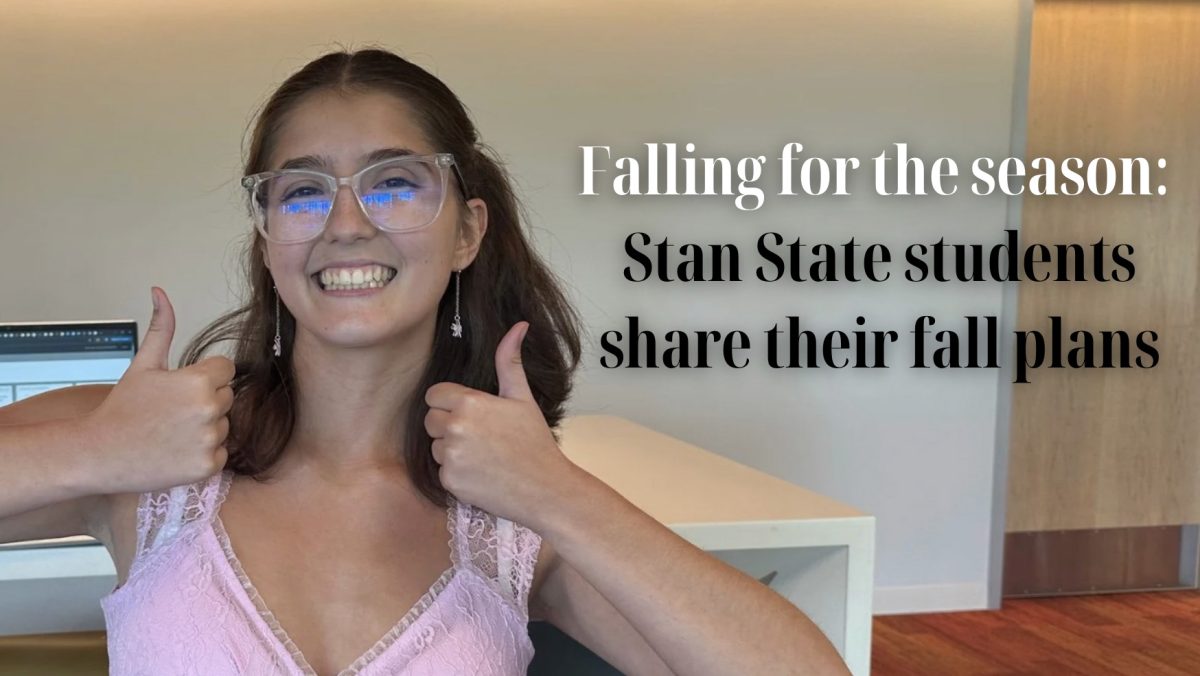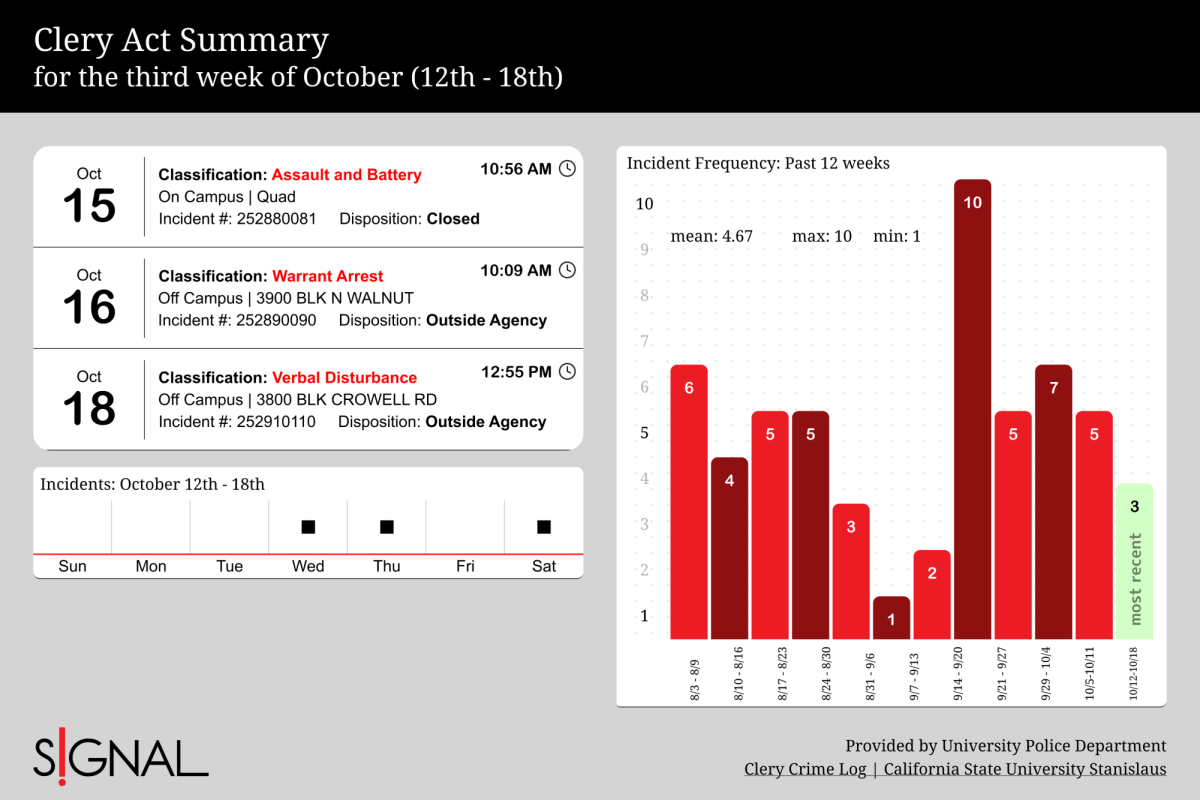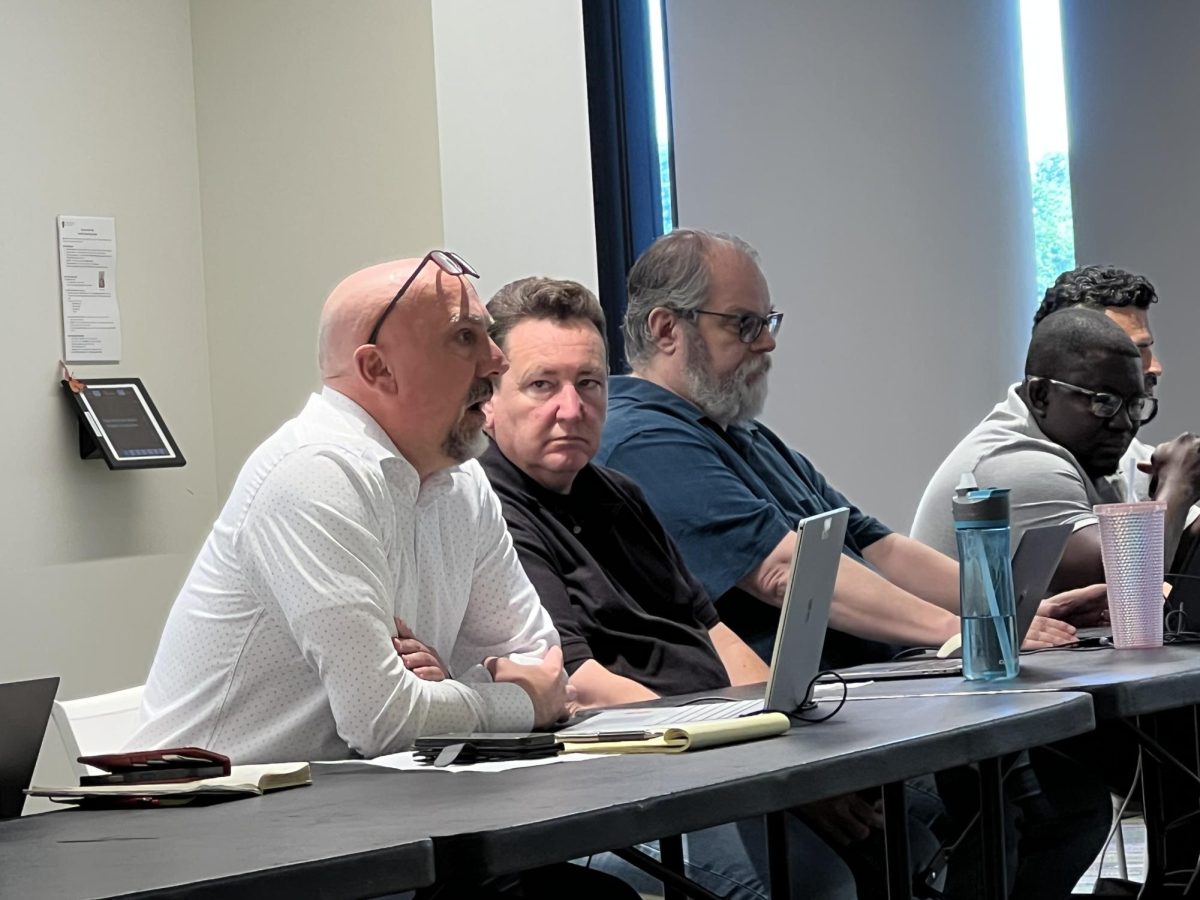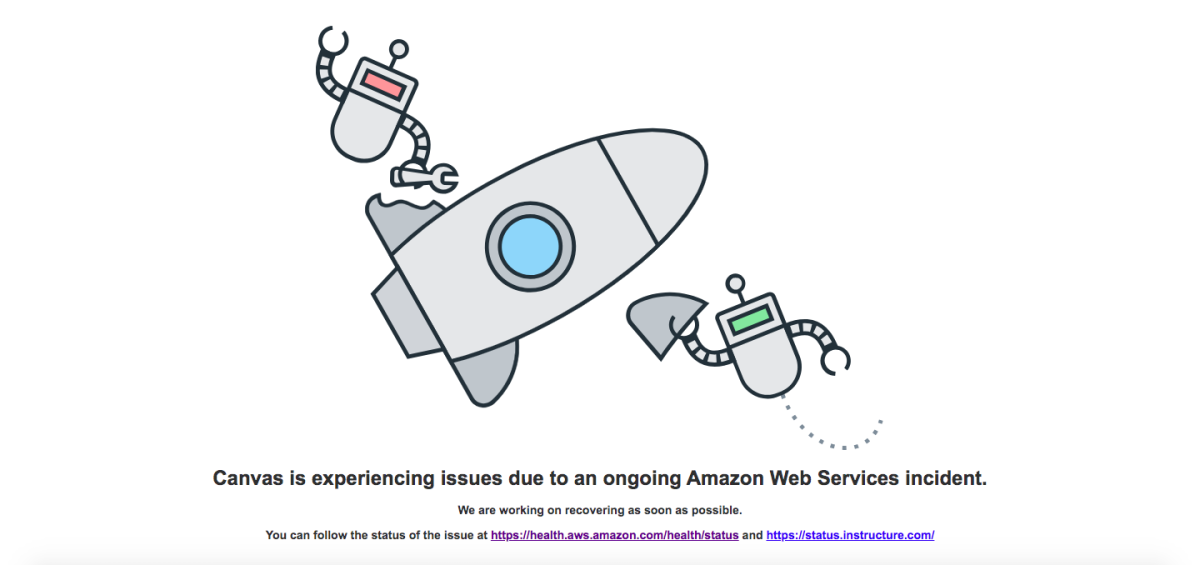CSU Stanislaus’s Undocumented Student Services offers resources for students, alumni, staff, and family members. This program creates a safe space, accessible through the Warrior Cross Cultural Center (WCCC), located on the second level of the Library (room 203).
Polet Hernandez, undocumented student services coordinator and Stan State alumna provides support for undocumented students at the WCCC. Her resources provide immigration legal services, peer support groups, advocacy training, professional development, and workshops. Other resources she provides are access to mental health referrals, financial aid assistance, and professional development.
Hernandez began her advocacy work at Stan State during her time as a student in 2015. She was a part of the student organization, previously called Students Advocating for Equality (SAFE), now known as the Undocumented Student Organization (Us).
“We fundraised to be able to provide scholarships for students, we had meetings at that point because we didn’t have free immigration legal services, we actually brought community immigration legal services to our campus to be able to provide services” said Hernandez.
The Us organization focuses on helping undocumented students who do not have Deferred Action for Childhood Arrivals (DACA).
“The first goal I think is for us to create a space for students to feel safe and welcome, then they can feel that they belong in our university,” Hernandez explained, “and the second goal is to provide the support services that they need on campus. Not only for their academic success but also for their personal experience.”
Workshops organized by Us have given undocumented students without DACA a chance to learn how to work and build businesses without a social security number.
The immigration legal services also provide students, staff, and alumni with free attorneys that can help them throughout their immigration experience. Students who are not undocumented can also receive help for their parents and other family members who may be undocumented.
Every two weeks, the attorneys do one in-person appointment and one virtual appointment, so that the student can decide which option is the best fit for them.
Hernandez can provide students with mental health services. Depending on what their needs are, a student can be referred to other campus resources or be sent to community organizations that provide services for those who are undocumented, at low or no charge.
Hernandez faced obstacles of her own as an undocumented student. She started college at Modesto Junior College where she had to pay for tuition out of pocket since financial aid and DACA were not available at that time. She also did not know if she was going to be able to work in the future. At one point, Hernandez and her brother each had to work two jobs to support their family, since her parents had lost their jobs during the recession.
“When I finally transferred to Stan State, that was when I felt like things changed for me as a student,” Hernandez said.
She was able to become a DACA recipient, which helped her significantly. She explained that it opened many doors for her, allowing for her to work in something related to her college career.
“So after that, just starting advocating more for the needs of undocumented students was like a goal for me,” she explained, “because I knew that for me, I was able to apply for it, but I had two siblings that were not part of that experience, so I seen that experience and how different our lives went because of that.”
This is one of the reasons she decided to advocate for others who are undocumented. Previously, people were not as open about their immigration status. Hernandez and others felt alone when it came to their experiences.
“I feel a sense of relief because I know that I’m able to help in the capacity that I can with my personal experience,” she said. “I feel that I can provide services for students who have similar experience to me and I know how to sometimes deal with those situations and those emotions because I felt them.”
Providing these services has helped Hernandez grow not only as an undocumented person but also as a professional.
Undocumented Students Encouraged to Reach Out
Maria Oregel Cervantes (graduate, Social Work) is another student involved with the WCCC. She serves as the Student Immigration Services office graduate assistant where she provides direct support and outreach to students. She also is responsible for creating flyers and organizing events.
Cervantes believes that she learned a lot throughout her first year as an undergrad. When she started working on campus, she had more opportunities to join student organizations and make more friends.
Like, Hernandez, Cervantes is also a DACA recipient. She feels as though she had some privilege when applying to campus, but still faces many barriers being a DACA recipient.
“There’s so many challenges behind it, there’s renewals every two years and that’s like the constant reminder of like six months before it expires, I already need to be allocating funds to pay for the fees, and making appointments with the attorneys to make sure I have that sent,” said Cervantes.
Cervantes’ advice would be to get involved with the WCCC because Us provide many resources.
“Now that I am on the side of working with them directly, it’s really sad to see that students are not taking advantage of the resources or not attending the events,” she said. “So my biggest recommendation to students is to come to the WCCC, to come and get themselves known by the staff here because even though they don’t have the permission to work, they can network here and have those letters of recommendation for the future.”
Students can also receive one-on-one support so they do not feel alone on campus. Cervantes feels like she can express herself since working at the WCCC. She has been able to ask for help with questions and filling out forms because of its welcoming environment.
Edgardo Hernandez (junior, Business Administration) currently serves as a student assistant at the WCCC.
Hernandez has had many positive experiences as a Stan State warrior. Being an undocumented person himself, Hernandez feels that professors treat students equally. He also believes that Stan State offers a lot of assistance for students, such as EOP peer mentoring and the Warrior Food Pantry.
Although Hernandez has had positive experiences at Stan State, he dealt with hardships beforehand.
Hernandez was born in Guatemala, raised in El Salvador and came to the United States when he was 16 years old. He arrived in California with his mother and started high school here.
“I went to the second semester for freshman year and then I didn’t speak English at all, so it was very difficult with me because I was thinking, ‘Was it worth it to go to school and then me not being able to understand anything?’ but after six months, I was able to understand English, but I was afraid to speak it,” Hernandez explained.
After he graduated high school, he became a Stan State Warrior in 2019. Hernandez strives to pursue higher education to help others.
“I want to help my community, because with my major, I’m trying to become a CPA for people that have businesses and then me being able to help them financially, maybe their business, that makes me want to pursue a higher education,” said Hernandez.
He also provided advice for other students who may feel alone in their journey.
“Try to join as many clubs that you can, because it provides you with, like, more communication skills, you got to know more people and their background and then you could learn from each other,” said Hernandez.
Check out WCCC and Undocumented Student Services on Instagram for more information.
Categories:
The Journey of Undocumented Warriors and Beneficial Campus Resources
WCCC building logo, located on the second level of the Stan State J. Burton Vasché Library in room 203 (Photo Contributed by Natalie Ramos)
0
Donate to Signal
Your donation will support the student journalists of California State University, Stanislaus. Your contribution will allow us to purchase equipment and cover our annual website hosting costs.
More to Discover

